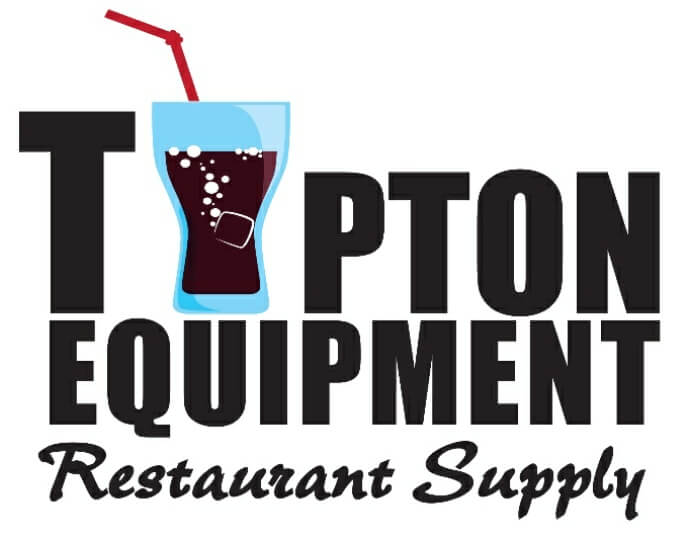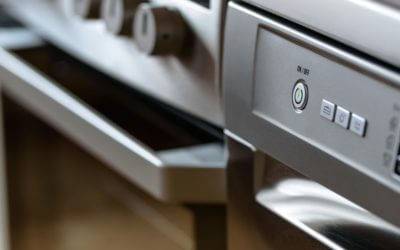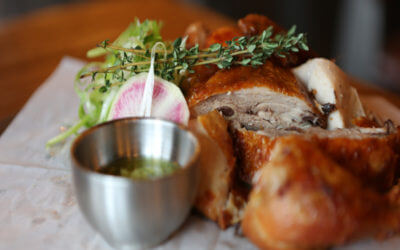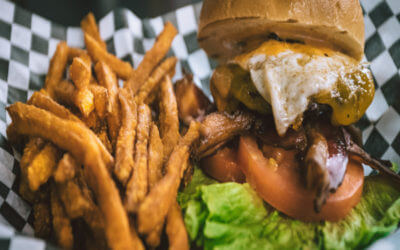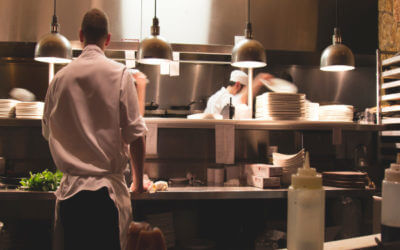Restaurant Supplies: Getting Started With a Food Truck
October 10, 2018While restaurants grow slowly, the food truck industry has been rocketing with 7.3% growth between 2012 – 2017.
Meet the Rules and Regulations
Before you go out and purchase a truck and set a menu, make sure you’re aware of the laws and regulations that govern food trucks in your area. There may be rules about restaurant supplies you must have, how close you’re allowed to be to other restaurants, and how often you have to move your truck. Find out if you can prepare fresh food on the truck or if you have to use a different commercial kitchen. If running a food truck in your area still makes sense, fill out all of the paperwork you need to get your permits and licenses.
Create Your Menu
It’s time for the fun part! What kind of food do you want to create? Make sure you take into account the supplies and ingredients you can get affordably, and whether they are available year-round. You may choose to have certain parts of your menu rotate seasonally. You should make sure that your food is simple and easy to prepare so that you can serve a large number of customers every day. Getting something from a food truck is supposed to be quick, so don’t leave your customers waiting! You’ll want to make sure you have the restaurant supplies you need to keep your cooking operation moving smoothly, from cooking equipment to napkins, plates, and plasticware. Consider what other food trucks operate in your area and if your niche has room for one more. No matter what you serve, you’ll want to think about how to stand out from other similar trucks.
Handle Your Financials
Starting any business in an investment, so make sure that you know what equipment and restaurant supplies you can afford. A used food truck can be as low as $20,000 while building a new one can cost over $100,000. From there, determine how to outfit your truck. Get the fryers, flat top grill, and whatever specialty equipment you think you’ll need. You can buy high-quality used equipment to get started! Your next step is marketing. Social media is a great way to market, but it works best once you have a following. Think about whether you need printed flyers, media interviews, or other tactics to get your truck off the ground. You’ll also need insurance to protect your investment from accidents, theft, or other crimes. Unfortunately, a food truck can be a sitting duck for those with bad intentions. Finally, set a monthly budget to stick to for your business. Set money aside for repairs and build a buffer for unexpected slow times. You may even decide to operate only part of the year and find other income during the offseason.
Get the Restaurant Supplies You Need Today!
A new venture is exciting, but it’s important to carefully plan for the success of your new business. As you look to start your Little Rock food truck, you need a supplier you can trust for restaurant supplies and equipment. We’ve proudly served local businesses for many years, and we’re excited to help you begin your new venture. Contact us for quotes on equipment today!
5 Things Every Restaurant Owner Should Do Before Buying Used Kitchen Equipment
Equipping your restaurant properly can cost a lot of money, so buying used kitchen equipment is the go-to choice for many restaurateurs. Buying used kitchen equipment for a restaurant is a bit different than buying used equipment for your home, however. You will...
Top Restaurant Technology Trends in 2018
When looking to buy restaurant supplies, you want to be on the leading edge of technology trends. This will keep your kitchen running smoothly. Let’s take a look at some of the most recent trends in restaurant supplies technology. 1. New Payment Options Who would...
5 Different Ice Shapes and Why You Should Care About Them
Ice makers are very popular in the restaurant and foodservice community because they eliminate the need to buy ice every day. And of course, adding an ice maker to your collection of foodservice equipment means you will always have ice on hand when you need it. An...
Pulping and Grinding: A Starter’s Guide to Reducing Commercial Food Waste Costs
For most restaurant owners and managers, the expenses involved in making meals are always under careful consideration. Water is needed to prepare, cook and wash food; power is necessary for food prep, cooking and cooling, and so on. However, how many of us consider...
Choosing the Right Milk Cooler: Cold Wall or Forced Air?
In a restaurant, milk is an essential to have on hand for coffee and other café-style beverages, for serving with kids’ meals, and as a key ingredient in many recipes. Keeping your milk properly chilled can be difficult without the proper restaurant equipment....
How to Choose Your Next Commercial Meat Smoker
The movies that connect with us on a personal level are the ones that linger in our memories forever. Anyone who has used a commercial meat smoker knows that they have a huge influence on the taste of a meal. You need to have just the right kitchen equipment to get a...
Are High Speed Ovens Too Good to be True?
You might have heard a few of the bold claims that foodservice equipment manufacturers have been making about high speed ovens, but they can’t be possible, right? Cooking three times as faster as regular ovens? Five times as fast? Fifteen times as fast? It may seem...
Choosing the Right Food Storage Containers for Your Restaurant
Choosing the right kitchen supplies will make a difference in your restaurant. Whether it is heavy duty kitchen equipment or food storage containers, each piece of equipment plays its own important role. Today, we are going to talk about how to choose the right food...
Tipton’s Guide to Perfect Poultry Trussing
Do you ever truss birds in your commercial kitchen? Trussing is a fantastic cooking technique because it makes poultry cook faster, look more attractive and taste better. If your commercial kitchen prepares poultry, you don’t want to miss these trussing tips. Trussing...
How to Eliminate Excess Condensation in Your Kitchen
Is your commercial kitchen getting steamy? If so, you could have more than just an uncomfortable working environment on your hands. Excess moisture in your commercial kitchen can result in the corrosion of equipment, the development of mold, and even damage to your...
The DIY Guide to Your Restaurant’s Own Garden
Stocking your restaurant supply with your own home-grown herbs and produce can truly bring your dishes to life. When it comes to food, everyone knows there’s nothing like homemade and home-grown. Having your own culinary garden, however large or small, can help you...
5 Reasons a Meat Grinder Will Set Your Burgers Apart
The more you do to prepare your foods in-house with the right kitchen equipment, the fresher and more flavorful your dishes become. There are all sorts of restaurants offering fast-food style burgers, but some diners are looking for the real deal. A fresh, juicy...
Pest Preventions to Implement in Your Commercial Kitchen
Restaurant pests: it’s something that few people want to think about. Like it or not, pest management is an essential consideration for every commercial kitchen. Offering food, shelter and water, the unprepared commercial kitchen naturally provides everything pests...
Choosing the Right Material for Your Cooking Equipment
Kitchens are very unique to their chef. Just like a car mechanic has a toolbox unique to them, so is the cooking equipment in a kitchen. And over time, the same cooking equipment become a natural extension of the chef. What tools are you using in your kitchen? It...
Kitchen Hacks for Your Home
Some people are naturally good at certain skills. We all know someone who is naturally book smart, athletic, or musically inclined. What makes you jealous of them is how easy they make tasks seem compared to you. One skill might be cooking. Your dream may not be...
